This post was last updated on 07 April 2021.
Rain-asking
It’s a hot day in the village of Dhenya under Chief Chivero in Mhondoro. I have paid the village elders a visit ahead of their annual rain asking ceremony, known as ‘Mukwerera.’ The ceremony involves performing a ritual during which beer is poured over the graves of the ancestors in petition for rain. This is followed by a feast.
step 1: collect from each homestead, inputs to brew the beer ahead of the ceremony
Tapera, the village headman, explains how the ceremony is conducted. His narration is punctuated by comments from the other elders as he seems to take certain detail for granted. He explains how he liaised with the village elders to mobilise inputs for preparation of the beer used for the libation ceremony. Such inputs include sorghum or millet and even cash.
The ceremony should be performed after the harvest but before the month of November. It is October 22, yet the moon’s cycle shows that a new month has already begun. I am told there has been debate among the village elders on whether it is still appropriate to proceed.
step 2: let ‘clean’ women brew the traditional beer over a seven day period
Some elderly village women are brewing the beer ahead of the ceremony. The entire brewing process takes up to seven days. There is one interesting detail on who can brew the beer. Only women past menopause and young girls still to go through puberty can do it. Women of child-bearing age are excluded. Tapera explains that the ritual is performed to ask for good rains, neither too little nor too much that would leave a trail of destruction.
In English the ceremony is commonly referred to as ‘rainmaking’. Some scholars have suggested that this is an error due to poor translation. Rather, this is a rain-asking ceremony. God is petitioned through the ancestors.
At this point, I’m reminded of my grandmother’s narration of this ritual. My grandmother, whose identity document suggest she is 93 (though conversations with her and my mother suggest she could be older), has a somewhat varying account of Mukwerera. Perhaps there is variations to the same ritual; or could it be that some of it has gotten lost over the years?
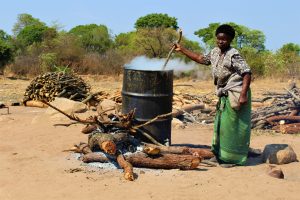
step 3: on the day of the ceremony, proceed to the grave-sites of the ancestors
Four days later on a Thursday I attend the ceremony. I am surprised by the size of the crowd that has gathered to witness the ritual. I had imagined a far larger group would be present. We make our way to the grave-sites and get there early before eight o’clock in the morning. The ritual is performed on Thursday which is the recognised day of rest known as ‘chisi’. No one is allowed to work in their fields on the day of rest.
step 4: perform the libation ritual at the grave-sites
The ritual begins; I remove my shoes as no one is allowed near the graves with shoes on. I hear some discussions in hushed voices, apparently about me. What follows is a request to the ancestors seeking their blessing for me to proceed. I am permitted to go ahead and record the proceedings.
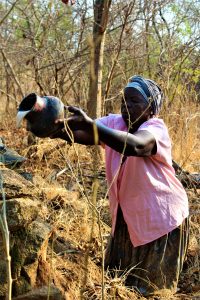
With the rest of us seated, two of the elders take turns (one woman and one man) to perform the ritual. Beer is poured over at each end of the ancestor’s grave. At the same time, a ‘prayer’ for good rains is made, followed by ululation. We perform the same procedure at the graves of both the ‘fore-father and fore-mother.’ Before we leave, the graves are cleared of any weeds amidst song and drumbeat, and the beer pot passed round for all to partake.
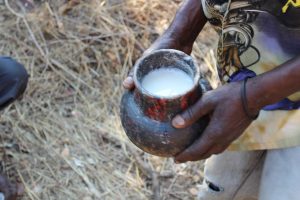
As we leave and walk back to the village for the feast, one of the men beats a small drum. This marks the beginning of the festivities.
step 5: return to the village and enjoy a feast with food, beer, song and dance
Back at the village, a sizable group has gathered under a big Muhacha tree. One can’t help but notice the glaring absence of the village’s young people. This no doubt means in the future very little if anything at all will be remembered about this rain-asking ceremony. The rest of the beer is brought before the gathering for all to drink and celebrate amid song and dance.
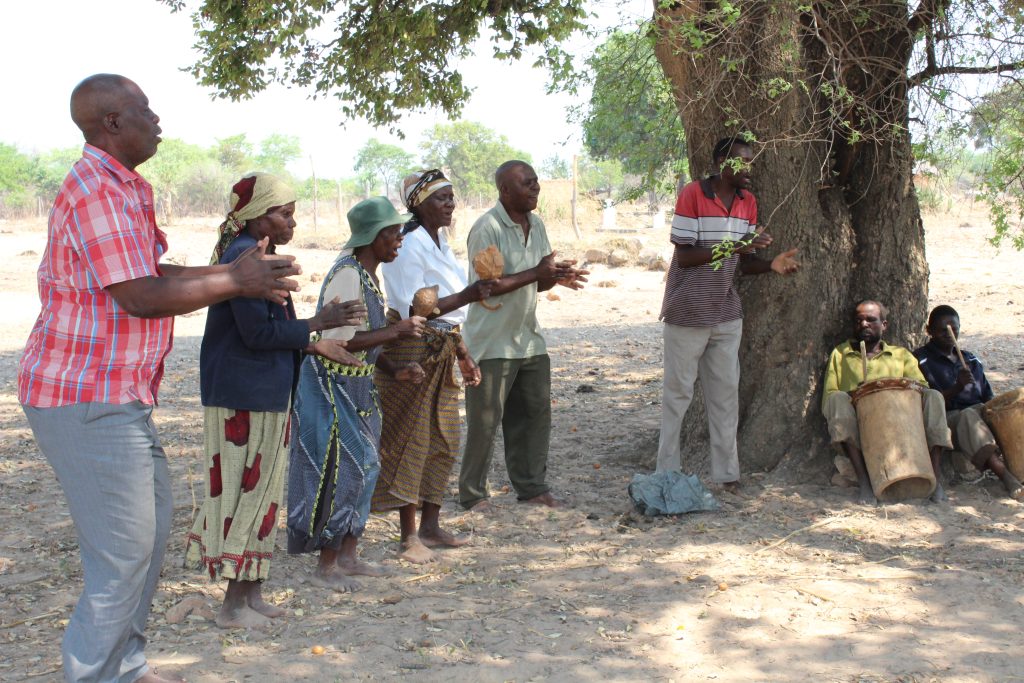
rain, rain, rain
Three days later i get a call from my father telling me it had rained cats and dogs back in the village. Was it an answer from the ancestors, or just a mere coincidence? You decide!
huruva
I visited Pasi Kawanzaruwa in January 2020. I gave him an account of this festival. Interestingly, he told me that the ritual I witnessed is called huruva, and not mukwerera. He however pointed out that it is not unusual for people to refer to the huruva ritual as mukwerera. You can read more about his account of mukwerera here.

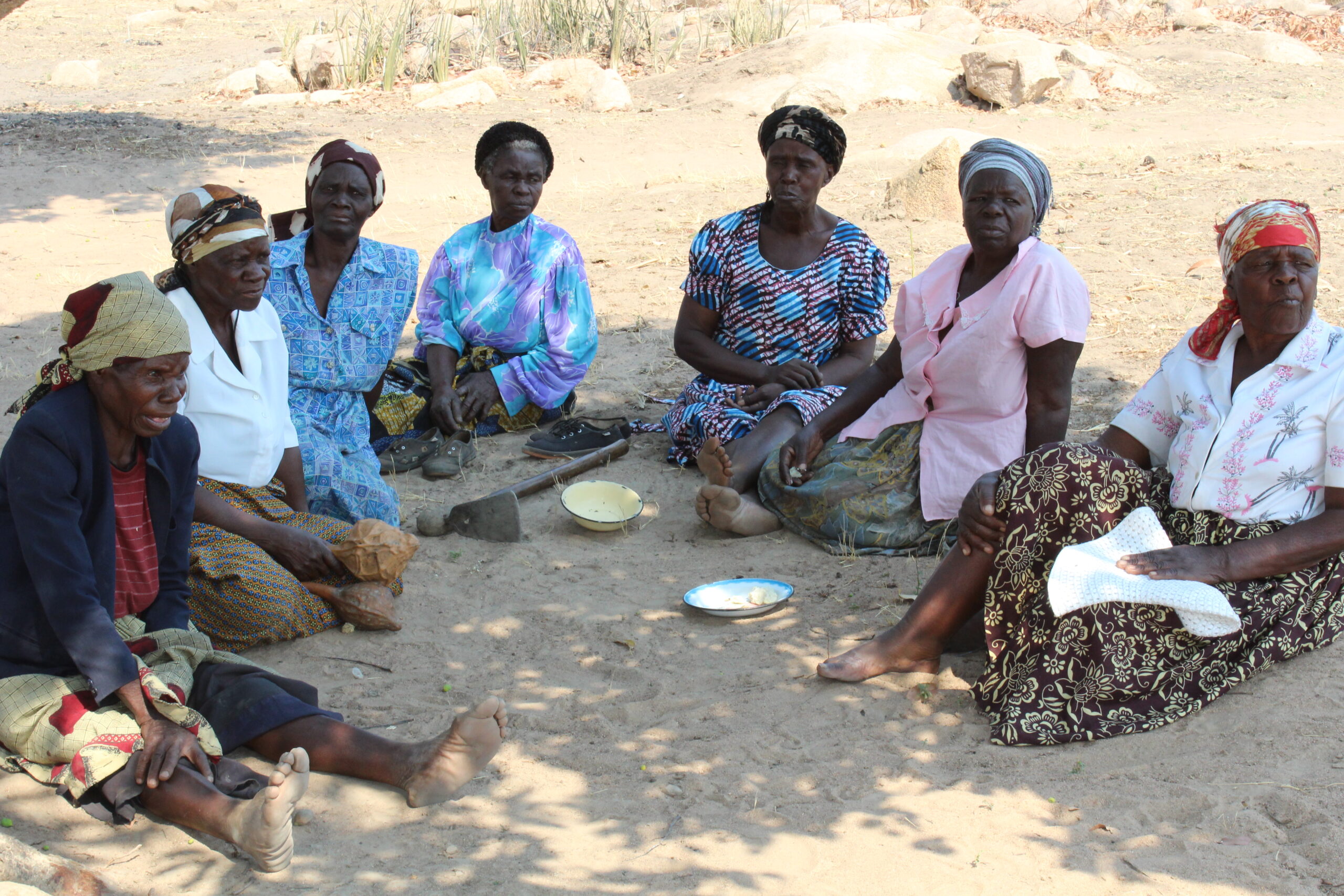
this is good it helped me on my assignment
Thank you Denzel. Glad to know it was of help!
What a beautiful ritual!
Thank you, Marisa. It really is a beautiful ritual — so rich in meaning and connection to nature. I’m glad you enjoyed learning about Mukwerera.